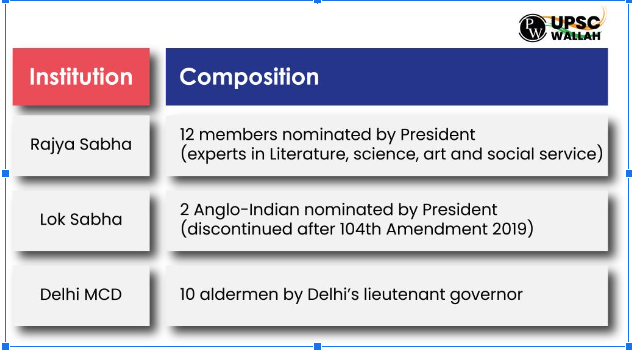The Supreme Court recently said the Constitution does not allow nominated members of a municipality the right to vote in meetings.
![]() 9 Feb 2023
9 Feb 2023
Context:
The Supreme Court recently said the Constitution does not allow nominated members of a municipality the right to vote in meetings.
About Aldermen:
Alderman in India:

<div class="new-fform">
</div>